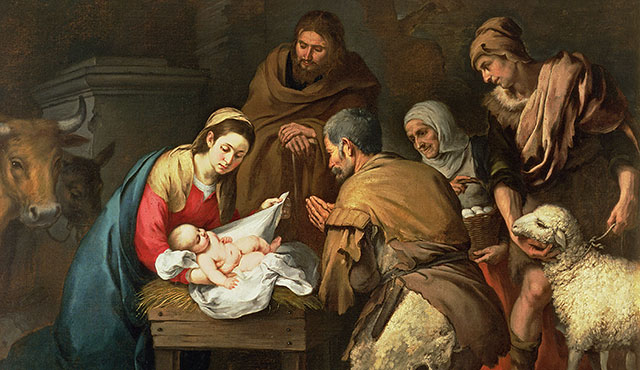Every Christian has heard the timeless story. It’s the story of an extraordinary event that changed the world forever, perhaps the most significant event in human history: the life and resurrection of Jesus. On Christmas Day, billions of followers throughout the world will celebrate the beginning of this story, the birth of God’s only begotten son.
We all know the account, how Mary gave birth to Jesus in the town of Bethlehem and laid him in a manger, how three Wise Men followed a star to Jesus and presented Him with gifts of gold, frankincense and myrrh, how a holy angel told a group of men about this amazing event and how word of His birth quickly spread far and wide. The birth of Jesus went viral (about two millennia before the birth of social media), thanks to the persistent effort of the first people outside of the manger to learn about it: the shepherds.
Why shepherds? Why didn’t God choose a king, any number of powerful dignitaries or people of great wealth? Why didn’t the three Wise Men, the angels sent by God Himself, or the Holy Family share the news of Jesus’ birth? How Christians live based on their understanding of the answers that follow help form the very foundation of their spirituals lives.
Shepherds were humble men with very little status. As such, they were looked down upon by almost everyone at that time. Angels appeared to these lowly people in the middle of the night to show that Jesus came into the world for everyone: the wealthy and the destitute, the educated and the ignorant, people of every race. Abraham, Moses and David were all shepherds, and God made promises to them about future deliverance. God honored this promise by announcing the coming of the Messiah to the shepherds first. Their key role was to spread the news of Christ’s birth as quickly as possible. History tells us that they did this very well.
“Shepherds were very simple souls, the ‘little ones,’” says Msgr. Stephen Doktorczyk, the Diocese of Orange’s judicial vicar of the Office of Canonical Services. “These simple and lonely souls were very close to the Lord and could more easily see Him. The Wise Men represented those with social standing and fame – but they arrived in Bethlehem much later. Maybe sometimes being too smart or famous can get in the way of seeing the Lord.”
Msgr. Stephen adds a more practical, down-to-earth reason why the shepherds were the first to learn about the birth of Christ: “During his 2009 Midnight Mass, Pope Benedict noted that shepherds were more likely to be the first since they were always on watch to protect their sheep.”
Protection. Vigilance. Dedication. Christian clergy and other Church leaders have for centuries been called to “shepherd” their “flock”: to lead them, teach them and love them. It’s not by accident that the word “pastor” means “shepherd,” or that the 23rd Psalm begins with, “The Lord is my shepherd; I shall not want…”
This is what Pope Francis had in mind when, during Chrism Mass in St. Peter’s Basilica in March 2013, he called on the world’s priests to stay close to the marginalized and be “shepherds living with the smell of the sheep.” Those “who don’t go out of themselves” by being mediators between God and people can “gradually become intermediaries, managers …”
According to the second chapter of Luke, one angel gave the shepherds the news of Jesus’ birth, and thousands, maybe even millions, of more angels appeared. This is only the second time in the entire Bible that a group of angels, rather than one, appeared to people, leaving no doubt that this message, from God Himself, was of upmost importance.
“What these shepherds heard, what the first angel had to say to them, was totally out of the ordinary,” says Msgr. Stephen. “It changed the world, and they knew that nothing else could be more important than receiving this message. They knew they had to move, and move quickly.”
So they did just that. “Luke does not indicate how much time may have passed from the birth until the announcement to the shepherds … nor does Luke indicate how long it might have taken for the shepherds to arrive at the stable. But we do know that they went “’in haste.’”
It’s all there, chapter and verse.
“You can read about this in Luke 2:15-20 for his account of the shepherds’ visit to Jesus, Mary and Joseph,” says Msgr. Stephen. “And see Luke 2:8-14 to read about the Angel giving the message to the shepherds and that the shepherds saw the heavenly host (of angels) praising God: ‘“Glory to God in the highest, and on earth peace to people of goodwill.’”
Glory to God, and Peace on Earth, indeed. Merry Christmas to you and yours.

